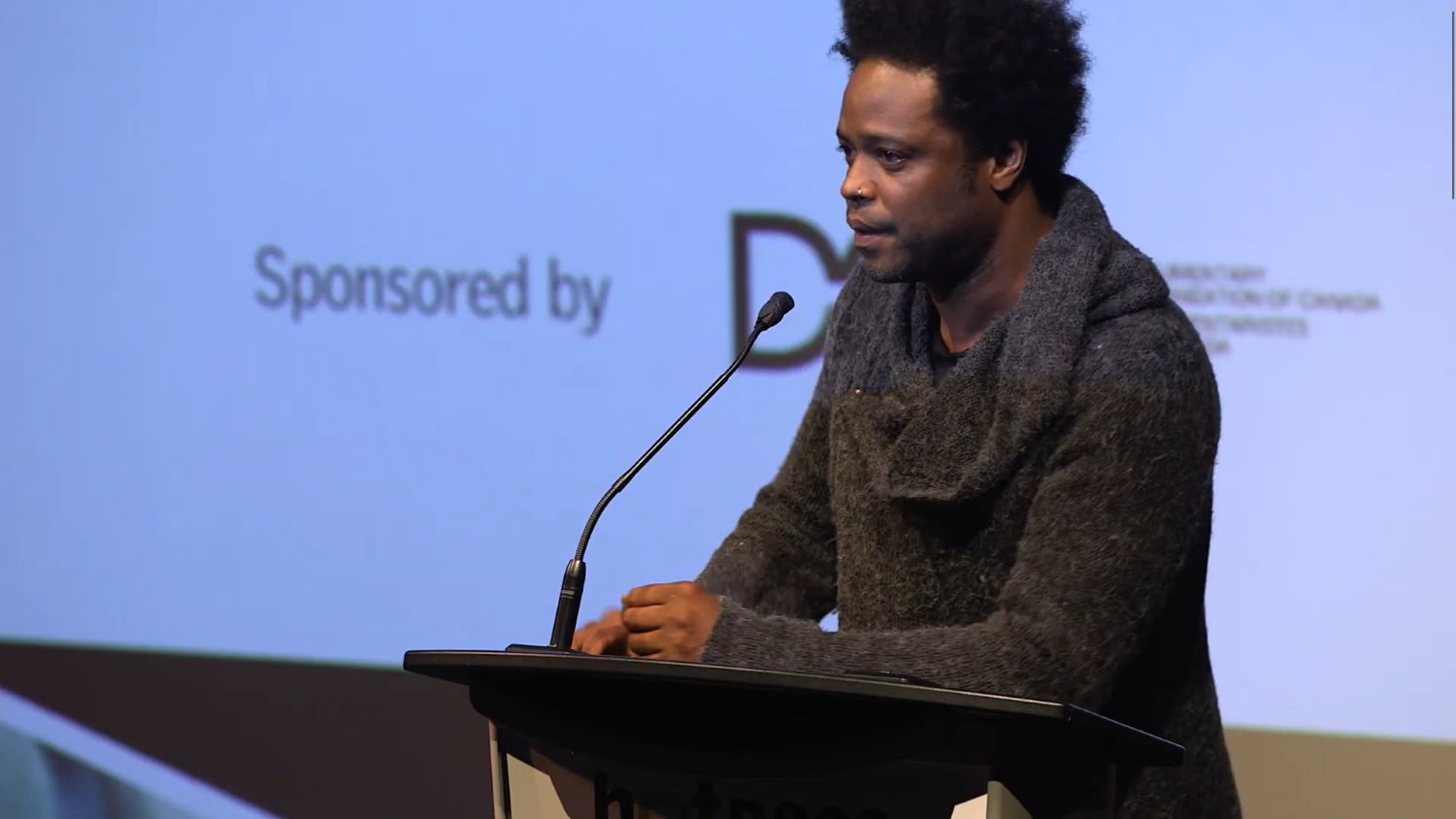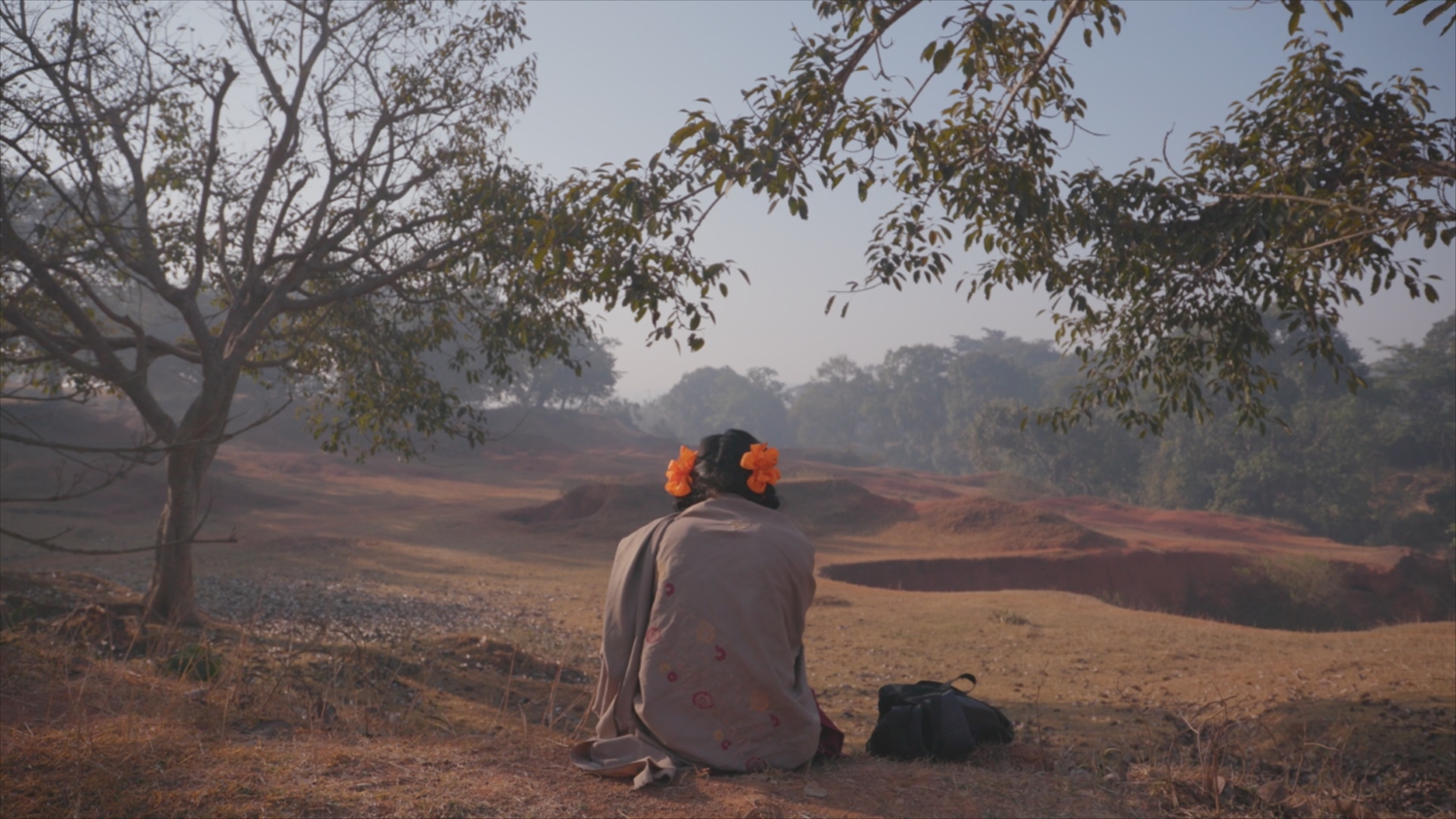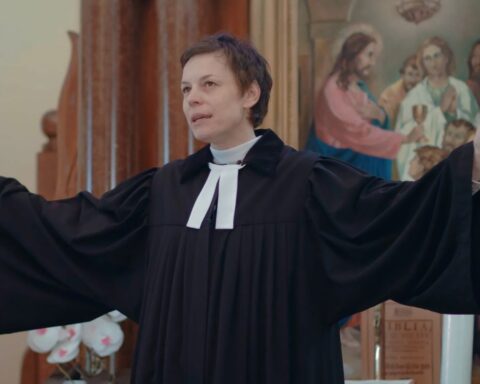Canadian film lost a genuine talent this weekend with the passing of Charles Officer. The director died on December 1 at age 48 following a lengthy illness. His death was first reported by The Globe and Mail’s Barry Hertz on social media. Memories and kind words immediately flooded the feeds on Saturday night and Sunday morning as proof of the many lives that Officer touched through his work and presence in Canadian film and television.
Officer made a name for himself by providing distinct work across the Canadian screen industry, working in, and excelling at, documentary, dramatic film, and television. Officer began his career in film and television as an actor with an appearance on the series Power Play, which drew upon his roots as a hockey player, and roles in Clement Virgo’s dramatic feature Love Come Down (2000) and Helen Lee’s drama The Art of Woo (2001).
At the same time, Officer developed his voice behind the camera directing the short dramatic film When Morning Comes (2000) and Short Hymn/Silent Life, both of which screened at the Toronto International Film Festival. Officer really hit his stride in his collaborations with fellow Toronto independent filmmaker Ingrid Veninger, co-directing the short Urda/Bone (2003) and the anthology film Hotel Vladivostok (2006), and acting with Veninger in The Limb Salesman (2004), directed by Anais Granofsky.
Officer’s true breakthrough proved to be his first feature film as a director, Nurse.Fighter.Boy (2008), which was produced by Veninger. The film was a potent drama about a single mother (Karen LeBlanc) in Toronto whose care for her son (Daniyah Ysrayi) intersected with a boxer (Clark Johnson) on a path to redemption. The film premiered at TIFF 2008 and went on to score 10 Genie Award nominations, including Best Picture and Best Director. More notable, however, was the nuanced portrait of Black life that the film injected into the Canadian canon. This trait proved a hallmark of Officer’s work throughout the next decade as his films expanded the conversation for Canadian stories, especially portraits of Toronto on film, by taking audiences inside the homes of everyday Canadians who rarely found space on screen.
Officer then proved himself anew with several successes in documentary. His 2010 documentary Mighty Jerome told the thrilling comeback story of racer Harry Jerome, who was considered the fastest man on Earth until a leg injury temporarily shattered his dreams. Officer’s film tackled Jerome’s story by intersecting a sports narrative with issues of race that had an impact on the runner’s career trajectory and the tales spun by the media. The doc won an international Emmy for best historical documentary.
In 2017, Officer had a double whammy with the release of two documentaries: Unarmed Verses and The Skin We’re In. Unarmed Verses, produced by the NFB, offered a significant portrait of the housing crisis in Toronto, particularly the impact of gentrification on Black residents. The film delivered a compassionate, yet sobering portrait through the story of 12-year-old Francine Valentine, a resident of the Villaways housing community in North York who found strength through an arts program.
Unarmed Verses, Charles Officer, provided by the National Film Board of Canada
“You’re not coming in with a script,” Officer told POV in 2016 on making the doc. “It’s more challenging. You have to learn to be very patient. With drama, you really work [to create] a moment with an actor. Here, it’s a different kind of trust. Somebody has to be OK with the camera being right next to their face. An actor expects that and hungers for it. A 12-year-old girl, it’s different—it’s big for her to give you that sort of trust.”
Unarmed Verses drew significant acclaim. It won Best Canadian Feature upon its premiere at Hot Docs and scored the prize for Best Canadian Feature at the Vancouver International Film Festival later that year. It was named to TIFF’s Canada’s Top Ten list and won the People’s Choice Award as the audience favourite of the selections. It went on to earn two Canadian Screen Award nominations, including best documentary feature.
With the short doc The Skin We’re In, Officer partnered with Toronto writer and activist Desmond Cole. The documentary drew upon Cole’s memoir to paint a searing portrait of anti-Black racism in Canada. Together with Unarmed Verses, the film solidified Officer’s place in Canadian film as one of its most distinct and versatile voices. The Skin We’re In earned a Canadian Screen Award nomination for the Donald Brittain Award for social and political filmmaking.
Officer followed those docs with his third documentary feature as a director, Invisible Essence: The Little Prince, a moving study of Antoine de Saint-Exupéry’s classic book, its impact on children, and the importance of letting young people see themselves in stories. “Politically, it was the closing of Obama’s term and with what was happening in the political spaces between Canada and United States, I just felt a connection to the book, especially reading it again before I delved into looking at it as a film,” Office told POV in 2019. “I found that I had different feelings about the book now that I was older: some memories affirmed, some different perspectives, some things actually made more sense. I just felt its message was something that I wanted to get out in the world.” Invisible Essence earned two Canadian Screen Award nominations including best documentary feature.
Among Officer’s final works were two additional noteworthy successes that showed his versatility. The 2020 crime drama Akilla’s Escape offered a gritty genre film with distinct vision. It won five Canadian Screen Awards including Best Original Screenplay for Officer. His final completed work, the dramatic series The Porter (2022), might be his legacy, though, as one of the directors helming the story of Black railway car porters. The Porter proved a breakthrough in Canadian television for having an all-Black creative team. It was the most nominated series at the 2023 Canadian Screen Awards and brought Officer a win for Best Direction in a Drama Series. Officer won the equivalent prize from the Directors Guild of Canada.
Beyond the accolades, though, Officer’s work will endure for its authentic portrait of Black Canadian life that afforded characters narrative complexity and nuance without shying away the realities of Canadian society. Moreover, Officer will be missed as simply a positive force in Canadian film: he was one of those people always persisted, always lifted up the people around him, and consistently pushed the industry forward with each new work.













